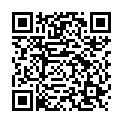|
|
|
| Module code: FT09.3 |
|
|
2V+2U (4 hours per week) |
|
4 |
| Semester: 2 |
| Mandatory course: yes |
Language of instruction:
German |
Assessment:
Written exam 120 min.
[updated 30.09.2020]
|
FT09.3 (P242-0044, P242-0045, P242-0046) Automotive Engineering, Bachelor, ASPO 01.10.2015
, semester 2, mandatory course
FT09.3 (P242-0044, P242-0045, P242-0046) Automotive Engineering, Bachelor, ASPO 01.04.2016
, semester 2, mandatory course
FT09.3 (P242-0044, P242-0045, P242-0046) Automotive Engineering, Bachelor, ASPO 01.10.2019
, semester 2, mandatory course
|
60 class hours (= 45 clock hours) over a 15-week period.
The total student study time is 120 hours (equivalent to 4 ECTS credits).
There are therefore 75 hours available for class preparation and follow-up work and exam preparation.
|
Recommended prerequisites (modules):
FT04.3 Engineering Mechanics I
[updated 09.04.2019]
|
Recommended as prerequisite for:
FT16.1 Vehicle Superstructures and Lightweight Construction
FT19.1 Passive Vehicle Safety
FT26.1 Project Work 1
[updated 06.05.2016]
|
Module coordinator:
Prof. Dr.-Ing. Ramona Hoffmann |
Lecturer:
Prof. Dr.-Ing. habil. Andreas Fricke
[updated 14.07.2015]
|
Learning outcomes:
After successfully completing this module, students will:
- be able to give an overview of the basic stresses occurring on technical components by analyzing them in real applications in order to make the components accessible for calculation.
- be able to calculate the resulting component stresses and deformations and provide evidence of the static or dynamic component safety by applying their knowledge of the basic types of stress in order to assess the load-bearing capacity of structures.
- be able to solve manageable component dimensioning tasks on the basis of given static and dynamic loads by developing their knowledge of component stresses and deformations in order to be able to design simple components.
- be able to formulate questions in front of a larger group and actively contribute to a discussion by promoting the learning process through interactive discussions and group work.
[updated 30.06.2024]
|
Module content:
1. Basic types of stress: Tension, compression, bending, shear force, bending, torsion (stress and deformation)
2. Instability due to buckling
3. Compound stresses and multiaxial stress states
4. Stress hypotheses
5. Notch effects
6. Fatigue behavior
[updated 30.09.2020]
|
Teaching methods/Media:
- Inverted classroom concept with integrated exercises
- Lecture notes
[updated 30.06.2024]
|
Recommended or required reading:
/1/ Dankert, J.; Dankert, H.: Technische Mechanik. Wiesbaden: Vieweg+Teubner Fachverlage 2013
/2/ Hibbeler, R.C.: Technische Mechanik 2 - Festigkeitslehre. München: Pearson Studium 2013
/3/ Holzmann, G.; Meyer, H.; Schumpich, G,: Technische Mechanik. Wiesbaden: Vieweg+Teubner Fachverlage 2018
/4/ Läpple, V.: Einführung ind die Festigkeitslehre. Wiesbaden: Vieweg+Teubner Fachverlage 2016
[updated 30.09.2020]
|


